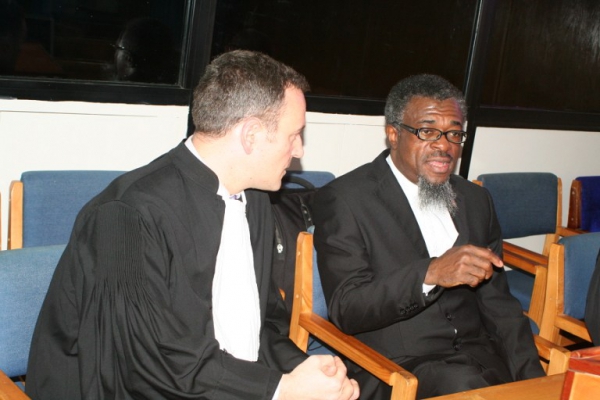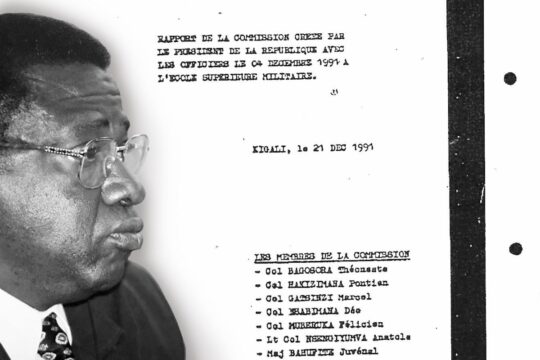Captain Innocent Sagahutu is back in the “safe house” in Arusha, Tanzania, where he has been living for several years alongside others freed by the International Criminal Tribunal for Rwanda (ICTR). For the last three weeks or so he had been in the hands of Tanzanian security services, who accused him of trying to cross into Burundi without travel documents. Sagahutu, an officer in the former Rwandan army, was convicted for the murder of Belgian UN peacekeepers in Kigali in April 1994 at the start of the Rwandan genocide.
Captain Innocent Sagahutu was stopped on March 10 in the Tanzanian district of Ngara as he was preparing to cross the border to Burundi. What was he going to do in that country neighbouring his native region of Cyangugu, southwest Rwanda? The former army officer told Tanzanian daily The Citizen that he wanted to visit relatives living in Burundi. But according to Tanzanian immigration services, he had no document authorizing him to leave Tanzania. Not true, Sagahutu told The Citizen, saying he had proper documents delivered by the UN in Tanzania and had recently travelled to Mozambique and Switzerland with the same papers.
The Mechanism for International Criminal Tribunals (MICT), which has been carrying out residual functions of the ICTR since it closed in December 2015, nevertheless denied this claim. “We say categorically that we did not provide him with any document authorizing him to leave Tanzania,” MICT spokesman Ousman Njikam told JusticeInfo on the phone from Arusha, “and in any case we do not have the authority to do that.” Njikam explained that the MICT only gives former prisoners at the safe house a document allowing them access to the MICT premises or to go for medical treatment, but without leaving the town of Arusha. “We cannot intervene in this case which is the sovereign affair of Tanzania,” he said. “So we are waiting, like everyone else, to see what the Tanzanian authorities decide.”
Captain Sagahutu was transferred to the immigration services in Dar Es Salaam, which released him on May 1 to return to the “safe house” in Arusha. “I thank the Tanzanian authorities,” he told the Kinyarwanda-Kirundi service of VOA the next day, whilst nevertheless complaining about bad conditions during the first days of his detention at the immigration services’ request.
Fear of returning to Rwanda
Sagahutu, now 55, was in 1994 commander of a squadron in the reconnaissance battalion, an elite unit of the Rwandan army at the time. He went into exile in July 1994, after the former rebel Rwandan Patriotic Front (RPF, now in power) took control of Rwanda. He later managed to get to Denmark and obtain political refugee status. He was arrested there in February 2000 under a warrant from the ICTR.
After a joint trial with three other former officers of higher rank, he was sentenced on May 17, 2011 to 20 years in jail for murders as crimes against humanity and war crimes. According to the judgment of the trial court, Sagahutu ordered the killing of Prime Minister Agathe Uwilingiyimana and ten Belgian UN peacekeepers on April 7, 1994.
But on February 11, 2014, the Appeals Chamber reduced his sentence to 15 years, confirming only his criminal responsibility in aiding and abetting the murder of at least two Belgian peacekeepers. He was acquitted of murdering Agathe Uwilingilimana.
Three months later, Sagahutu was freed, after MICT President Theodor Meron approved his request for early release. In the “safe house” where he went from prison, he found other personalities who were also freed early like him or simply acquitted by the ICTR. They include senior officers of the former Rwandan army and ex-ministers. None of these former dignitaries wants to go back to Rwanda, saying they fear for their security. They are asking, so far in vain, to join their families who now live mostly in Western countries.






